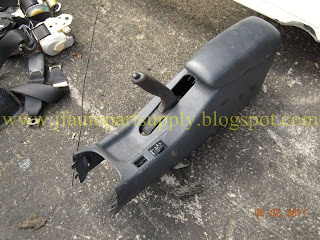This Half Cut AE 111 - Engine 4A-GE With 6 Speeds Gear Box, Selling Together With All The Parts Shown In The Photos
Selling As Is Where Is Basis
To View Engine Idling, Click Video Below
General View Of The Half Cut

Engine Tag Information

Chassis Number

General View Of The Speedometer

Mileage Reading :- 135857

Front View Of The Engine

Side View Of The Engine

Side View Of The Engine

After Market Spark Plugs Cables

Brand Of The Spark Plugs Cables

After Market Air Filter

Inner Part of The Engine

General View Of The Under Carriage

General View Of The Gear Box

Closed View Of The Six Speeds Gear Box

Bonnet - Good Condition

Driver Side - HeadLamp - No Cracked / Scratches / Side Lamp - Bracket - Broken

Driver Side - Absorber - Good Condition

Absorber Spec


Driver Side - Fender - Yellow Circle Indicate Damaged Area

Driver Side - Fender - Dented

Passenger Side - Headlamp And Side Lamp - No Cracked / Scratches

Passenger Side - Absorber - Good Condition


Passenger Side - Fender - Yellow Circle Indicate Damaged Area

Closed View Of The Dented Area

Passenger Side - Fender - Dented

General View Of The Loose Parts

Rear Absorbers ( Tien ) With Knuckles - Good Condition

One Set TailLamp - No Cracked / Scratches

One Set Safety Belt With Air Bag Sensor Attached

Consol Box With Hand Brake Handle

Rear Bumper - Good Condition

General View Of The Seats And Side Skirt - Good Condition

Front Seats - Good Condition / Need Cleaning

Rear Seat - Good Condition / Need Cleaning

Rear View Of The Half Cut
